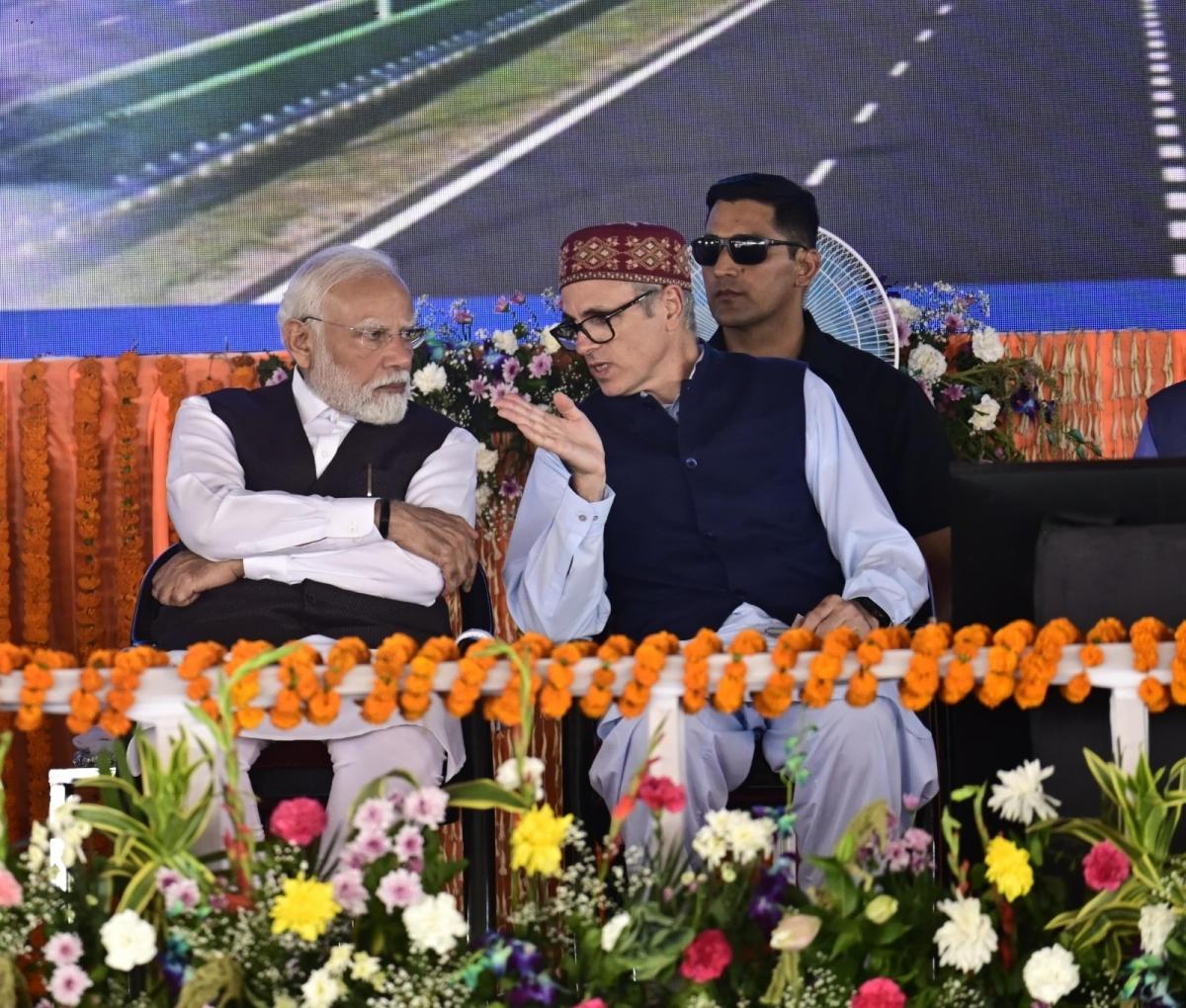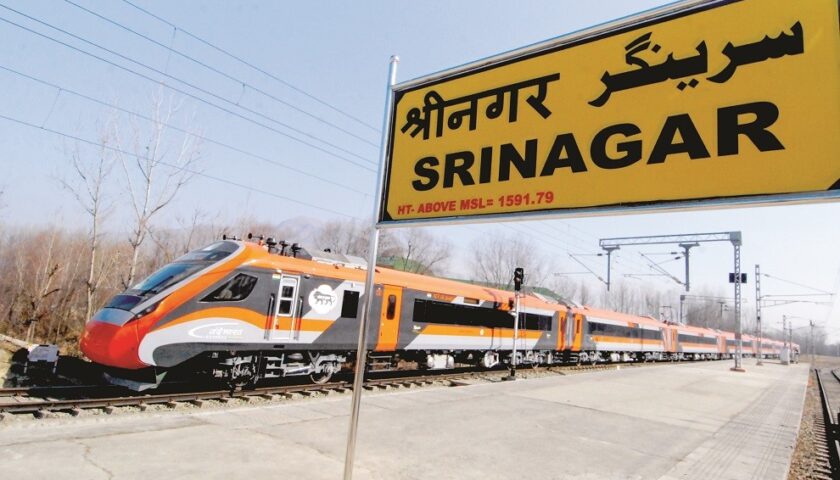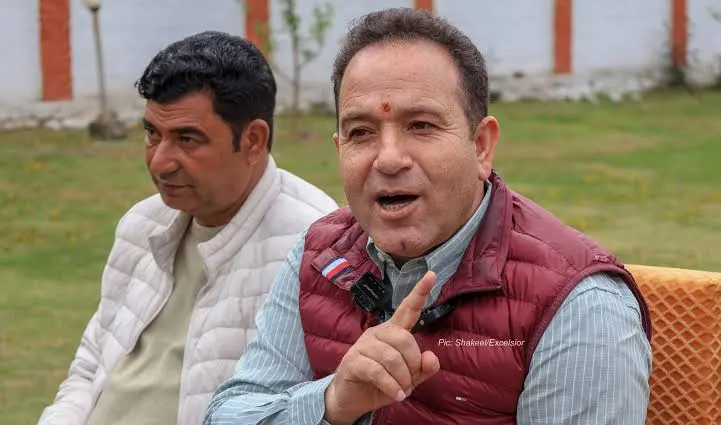On the first anniversary of the NC-led government, Chief Minister Omar Abdullah made a direct and passionate appeal to Prime Minister Narendra Modi, urging him to restore full statehood to Jammu and Kashmir.
By: Javid Amin | 16 October 2025
A Direct Appeal to Delhi
Speaking at a town hall event in Srinagar, Omar declared:
“We still believe that the solution to all the problems facing Jammu and Kashmir lies in the restoration of statehood.”
His remarks, though expected, carried a sharper tone than previous statements — a sign of mounting frustration within both the administration and the public over what many see as unkept promises from New Delhi.
A Promise Deferred: The Centre’s Roadmap
When Article 370 was abrogated in 2019, the Union Government laid out a three-step roadmap:
-
Delimitation of constituencies
-
Elections to restore democratic representation
-
Statehood restoration
The first two steps have been completed. The 2024 Assembly elections marked the return of elected government under the National Conference (NC). But statehood remains elusive — leaving J&K as a Union Territory with limited autonomy.
Omar Abdullah reminded the Centre of this commitment, saying:
“It’s not just about symbolism. It’s about dignity, accountability, and the ability to govern our own land. The promise of statehood was made in Parliament, reaffirmed in the Supreme Court — yet here we stand, waiting.”
Why Statehood Matters — Beyond Politics
Statehood in Jammu and Kashmir is not merely a constitutional formality. It represents:
-
🏛 Administrative Autonomy: Control over decision-making, especially in policing, land, and development.
-
🌾 Emotional Identity: A sense of dignity and ownership for Kashmiris who have historically felt politically marginalized.
-
💼 Development Leverage: Greater financial and legislative flexibility to attract investment and execute local projects.
-
🛡 Institutional Trust: Rebuilding faith in democratic institutions after years of central rule.
Political analysts argue that without statehood, no regional government can effectively address unemployment, development backlogs, or alienation.
The Political Timing — Not Accidental
The timing of Omar Abdullah’s appeal is significant. It comes:
-
📅 Just ahead of the Rajya Sabha elections, where NC is seeking support from other opposition parties like Peoples Democratic Party (PDP).
-
⚖️ Amid rising public frustration over stalled statehood and governance delays.
-
🧭 As national attention turns back to Kashmir after a relatively quiet summer season.
Omar’s statement is both a political pressure tactic and a rallying call to consolidate the opposition narrative around statehood — an issue that cuts across party lines in Kashmir.
Coalition and Opposition Dynamics
The NC–Indian National Congress alliance has survived its first year, but not without tensions — particularly over Rajya Sabha nominations and power-sharing.
At the same time, PDP president Mehbooba Mufti has linked her party’s support in the Rajya Sabha polls to NC’s willingness to back land protection and daily wager bills in the Assembly.
This strategic push by PDP underscores how statehood and land rights are politically intertwined. Land protection, in particular, has emerged as one of the most emotive issues post-Article 370.
Public Sentiment — “We Voted for Dignity”
In towns like Baramulla, Anantnag, and Kulgam, ordinary citizens say their support for NC was rooted in the hope of regaining their lost autonomy. One shopkeeper in Anantnag put it bluntly:
“We voted for dignity, not just for a government that takes orders from Delhi. If statehood doesn’t come, nothing will change.”
This growing impatience is palpable in both rural and urban Kashmir. For many young people, statehood represents a return of agency, not just a political label.
National vs Regional Narrative
The Modi government, since 2019, has framed its Kashmir strategy around:
-
Strong central control
-
Security consolidation
-
Development projects
However, in Kashmir’s political imagination, the restoration of statehood remains a litmus test of trust between Delhi and Srinagar.
Omar Abdullah’s push seeks to shift the conversation from development promises to democratic rights — a narrative that could resonate deeply across party lines.
Obstacles on the Road to Statehood
Despite repeated assurances from New Delhi, several factors complicate the immediate restoration of statehood:
-
Security Concerns: Sporadic militant activity remains a government concern.
-
Legal and Administrative Preparations: The Union Government has to define clear legislative boundaries for the new state.
-
Political Calculus: The Centre may be reluctant to hand back control before the 2026 general elections.
-
Opposition Realignment: A stronger opposition front could pressure Delhi but may also delay negotiations.
Political experts suggest that statehood might be restored in phases, beginning with limited legislative powers, followed by full administrative control.
Opposition Parties React
-
PDP (Mehbooba Mufti): Welcomed Omar’s statement but reiterated that “talk is not enough; political unity is needed to make Delhi act.”
-
Apni Party (Altaf Bukhari): Called the demand “long overdue” but cautioned against “overplaying expectations before 2026.”
-
Bharatiya Janata Party (BJP): Dismissed the statement as “emotional politics,” accusing NC of failing to deliver development while “romanticizing statehood.”
Expert Analysis — The Stakes Are High
A senior political analyst from Srinagar commented:
“Omar Abdullah knows that his government’s legitimacy rests on delivering statehood. If he cannot even push for a clear timeline from Delhi, he risks being remembered as a caretaker rather than a change-maker.”
Another observer added:
“This is more than a speech. It’s the opening act of a new political battle — one where emotional appeal, legislative maneuvering, and national optics will collide.”
A Timeline of Statehood Promises
| Year | Event | Key Promise |
|---|---|---|
| 2019 | Article 370 abrogated | Centre promises delimitation → election → statehood |
| 2022 | Delimitation completed | New constituencies notified |
| 2024 | Assembly elections held | NC forms government |
| 2025 | 1 year of NC rule | Statehood remains pending |
This timeline reveals a pattern of deferral. While elections were restored, sovereign administrative power has not returned to the people of Jammu and Kashmir.
Editorial Reflection — A Defining Year Ahead
The coming months could determine the fate of Omar Abdullah’s government. His administration faces three critical choices:
-
Sustain political pressure on New Delhi through unified opposition.
-
Deliver tangible governance reforms to maintain public trust.
-
Translate rhetoric into results by setting a statehood timeline or extracting one from the Centre.
Symbolism brought him to power. Substance will define whether he remains relevant.
Closing Thoughts
“Statehood is not a luxury. It’s our right,” Omar Abdullah concluded in his Srinagar address.
“Delhi must fulfill the promise it made — not to me, but to the people of Jammu and Kashmir.”
Whether Delhi listens remains uncertain. But one thing is clear: the call for statehood is now at the political centerstage, and it could shape the next chapter of Kashmir’s democratic journey.




